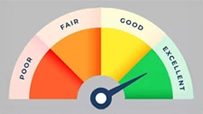The Role of Recurring Deposits as Non-Traditional Investments
September 03, 2025

While Recurring Deposits might not be the most high-yielding investment vehicle, their role in non-traditional strategies lies in their stability, predictability, and ability to complement riskier investments. By integrating RDs into a broader investment strategy, investors can achieve a balance of safety and growth, manage cash flow effectively, and strategically plan for future financial needs.
Recurring Deposits are often viewed as traditional, conservative investment vehicles typically used for saving purposes.
How Recurring Deposits as Non-traditional Investments Play a Crucial Role?
Recurring deposits strike a balance between risk, return, and accessibility. They provide guaranteed returns higher than savings accounts, more liquidity than some riskier instruments, and lower risk than debt funds.
Here's how they act as a perfect investment choice as non-traditional investments:
1. Stabilising Portfolio Risk
RDs can serve as a stabilising force in a diversified investment portfolio, which is why it is sought after as a good investment mix. In a portfolio that includes high-risk assets like stocks or cryptocurrencies, RDs offer a guaranteed return with minimal risk. This can balance out the volatility from more aggressive investments, ensuring that the portfolio has a steady component that grows at a predictable rate.
2. Cash Flow Management
Recurring deposits can be used to manage cash flow and create a structured investment plan. By setting up multiple RDs with different maturity periods, investors can stagger their returns and have a regular flow of funds. This can be particularly useful in managing liquidity needs or planning for future expenses without having to liquidate other investments prematurely.
3. Supplementing High-Risk Investments
Recurring deposits can complement high-risk investments by providing a secure and predictable return. Investors who engage in high-risk, high-reward investments might use RDs as a safety net. The guaranteed returns from RDs can offset some of the risks associated with more speculative investments, providing a buffer against potential losses.
4. Hedging Strategy
Recurring deposits can act as a hedge against market downturns. In times of market volatility, having a portion of your investment in RDs can protect against sudden drops in asset values. The fixed returns from RDs can ensure that a part of your wealth grows steadily, even when other investments are underperforming, making it a good investment mix.
5. Goal-Oriented Planning
RDs can be strategically used to achieve specific financial goals. For non-traditional investors with specific goals such as funding a startup or saving for a unique opportunity, RDs can be set up to mature around the time when the funds will be needed. This can ensure that the money is available when required without the risk of market fluctuations affecting it.
Here's an example to illustrate gold-oriented planning:
Scenario: Ritu wants to save for a vacation in 2 years. She decides to open a recurring deposit account with Ujjivan SFB and deposits ₹5,000 every month.
Sample Calculation:
- Amount deposited each month: ₹5,000
- Tenure: 24 months
- Interest rate: 6% per annum
- Total maturity amount: ₹1,24,000
In this scenario, Ritu's disciplined savings approach through recurring deposits allows her to accumulate ₹1,24,000 over 2 years.
6. Behavioral Finance Tool
RDs can help in controlling impulsive financial behaviour. For investors prone to making hasty decisions, RDs can act as a disciplined savings mechanism. The fixed monthly contributions and the lock-in period can help curb the tendency to withdraw or reallocate funds impulsively.
7. Enhancing Risk Management
RDs can be part of a broader risk management strategy. In an investment strategy that includes various asset classes, RDs provide a low-risk option that helps in managing overall portfolio risk. They can be used alongside insurance products and other low-risk investments to ensure comprehensive risk coverage.
8. Interest Rate Arbitrage
Recurring deposits in non-traditional investments can be used to exploit interest rate arbitrage opportunities. In environments where interest rates are rising, investors might use RDs to lock in rates for the short term. Conversely, if rates are falling, short-term RDs can be employed to benefit from higher rates before they drop.
Final Thoughts
Recurring deposits as non-traditional investments have evolved considerably, especially in hedging risks. In fact, strategies involving RDs play a vital role also for disciplined savings, flexibility, higher returns than regular savings accounts, and withdrawal options. By exploring alternative savings options like RDs and creating an effective investment mix, you can optimise your financial growth and achieve your goals.
Start small, dream big! Invest in Ujjivan Small Finance Bank’s Recurring Deposit and enjoy higher interest rates! Save for your long- and short-term goals with our RD and live a stress-free financial life. Start investing with just ₹100!
Disclaimer:
The contents herein are only for informational purposes and generic in nature. The content does not amount to an offer, invitation or solicitation of any kind to buy or sell, and are not intended to create any legal rights or obligations. This information is subject to updation, completion, amendment and verification without notice. The contents herein are also subject to other product-specific terms and conditions, as well as any applicable third-party terms and conditions, for which Ujjivan Small Finance Bank assumes no responsibility or liability.
Nothing contained herein is intended to constitute financial, investment, legal, tax, or any other professional advice or opinion. Please obtain professional advice before making investment or any other decisions. Any investment decisions that may be made by the you shall be at your own sole discretion, independent analysis and evaluation of the risks involved. The use of any information set out in this document is entirely at the user’s own risk. Ujjivan Small Finance Bank Limited makes no representation or warranty, express or implied, as to the accuracy and completeness for any information herein. The Bank disclaims any and all liability for any loss or damage (direct, indirect, consequential, or otherwise) incurred by you due to use of or due to investment, product application decisions made by you on the basis of the contents herein. While the information is prepared in good faith from sources deemed reliable (including public sources), the Bank disclaims any liability with respect to accuracy of information or any error or omission or any loss or damage incurred by anyone in reliance on the contents herein, in any manner whatsoever.
To know more about Ujjivan Small Finance Bank Products Visit:"https://www.ujjivansfb.in"
All intellectual property rights, including copyrights, trademarks, and other proprietary rights, pertaining to the content and materials displayed herein, belong
to Ujjivan Small Finance Bank Limited or its licensors. Unauthorised use or misuse of any intellectual property, or other content displayed herein is strictly prohibited and the same is not intended for distribution to, or use by, any person in any jurisdiction where such distribution or use would (by reason of that person’s nationality, residence or otherwise) be contrary to law or registration or would subject Ujjivan Small Finance Bank Limited or its affiliates to any licensing or registration requirements.
FAQs
1. Can I open multiple recurring deposit accounts with different banks as alternative savings?
Yes, you can open multiple recurring deposit accounts with different banks as alternative savings depending on your requirements and convenience.
2. Are the interest rates for recurring deposits fixed or variable?
The interest rates for recurring deposits are typically fixed at the time of account opening.
3. Can I withdraw my recurring deposit before the maturity period?
You can foreclose your Recurring Deposit in case of emergency. However, you would lose out on the interest. Additionally, RD premature withdrawal penalty would be levied. Ujjivan doesn’t charge and premature withdrawal fee for withdrawals made after 6 months from the time of deposit.
4. What is the minimum monthly deposit required for a recurring deposit?
The minimum monthly deposit required for a recurring deposit varies between banks. It can start from as low as ₹100.
5. Is the interest earned on recurring deposits taxable?
Yes, the interest earned on recurring deposits is taxable under the Income Tax Act. TDS (Tax Deducted at Source) is applicable if the interest exceeds ₹40,000 per annum (₹50,000 for senior citizens).
6. Can I convert my recurring deposit into a fixed deposit as a good investment mix?
Some banks provide the option to convert a recurring deposit into a fixed deposit upon maturity, which serves as a good investment mix. This allows you to continue earning interest on your investment.
7. Why do recurring deposits make a good alternative savings plan?
Recurring deposits make a good alternative savings plans because of liquidity, no risk and ability to hedge risks.
8. Are recurring deposits as non-traditional investments suitable for short-term financial goals?
Recurring deposits as non-traditional investments are generally more suitable for medium to long-term financial goals due to their fixed tenure.
Latest Blogs

APK Fraud: How One Wrong Download Could Empty Your Bank Account
May 13, 2025
Picture this. You’re sipping your evening tea when your phone rings.

Gold Loan LTV Ratio Explained (75% to 85%): What It Means for Borrowers
March 20, 2025
In June 2025, the Reserve Bank of India (RBI) introduced a significant relaxation for gold loan borrowers: the maximum Loan-to-Value (LTV) ratio for loans below ₹2.5 lakh was raised to 85%, up from the long-standing cap of 75%. Loans between ₹2.5 lakh and ₹5 lakh can now go up to 80%, while loans above ₹5 lakh continue under the 75% ceiling.

Good Debt vs Bad Debt: Learn the Difference
August 13, 2025
Every month, millions of Indians wait for the familiar debit alert, an EMI deducted from their account.

Got a Tax Refund? 5 Smart Ways to Put Your 2025 Refund to Work
August 13, 2025
For many taxpayers, there’s a unique sense of relief when a tax refund arrives.

Credit Score Not Improving? 5 Mistakes You Might Be Making
August 13, 2025
For most of us, a credit score feels like a silent judge sitting in the background of our financial lives.





